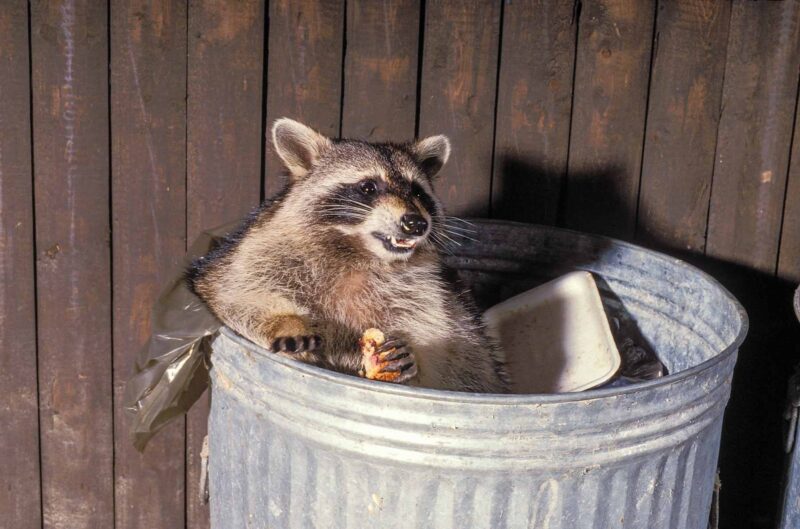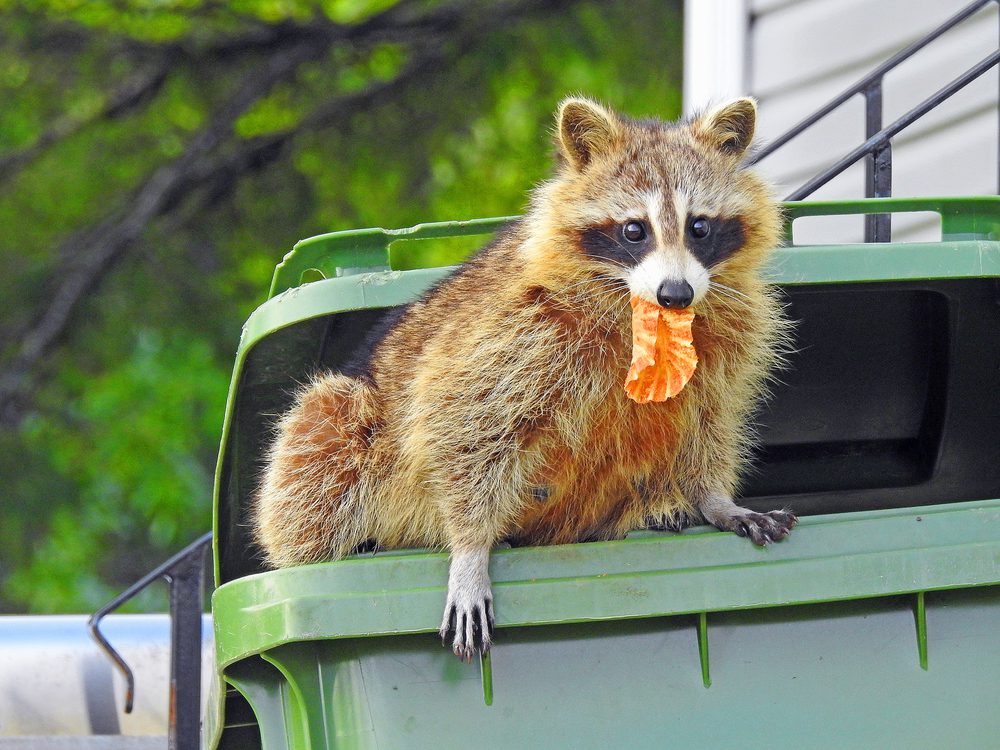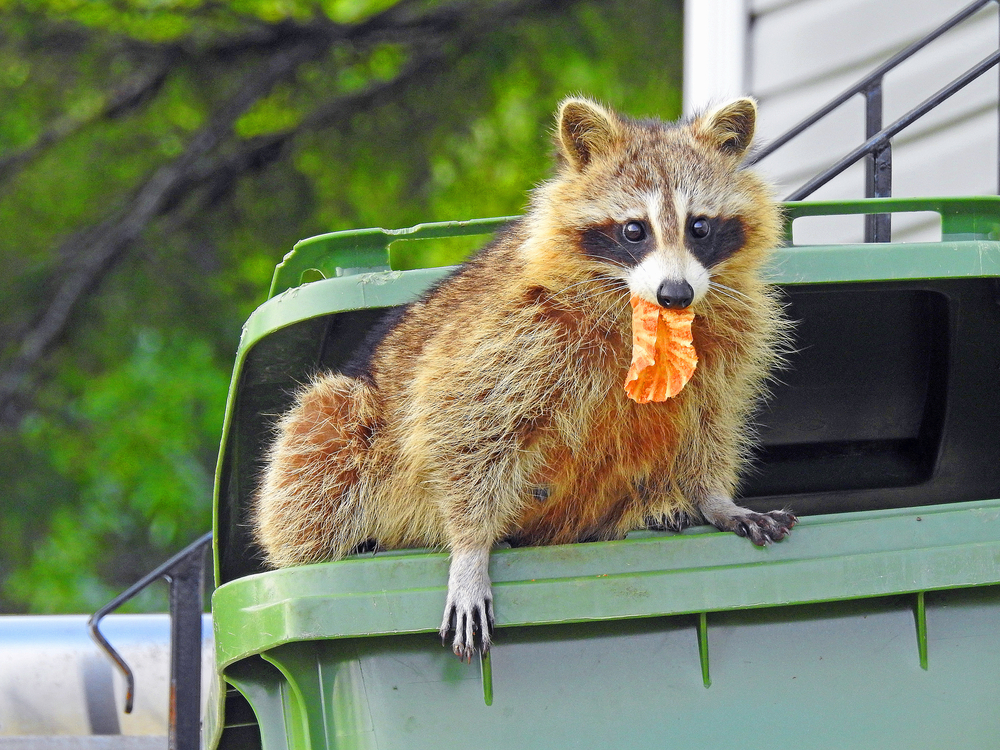
Urban areas are teeming with wildlife, and one of the most common sights is raccoons rummaging through trash bins. These resourceful creatures have adapted well to the human-dominated landscape and have found an abundant source of food in our garbage.
The Opportunistic Nature of Raccoons

Raccoons, scientifically known as Procyon lotor, are medium-sized mammals native to North America. They are highly adaptable and have successfully thrived in various environments, including forests, marshes, and even urban areas. This adaptability is partly due to their opportunistic nature when it comes to food sources.
These intelligent creatures have a diverse diet that includes fruits, nuts, insects, small mammals, eggs, and even fish. However, in urban areas, raccoons have discovered an easy and readily available food source ??? our trash.
Trash Bins: A Smorgasbord for Raccoons

Raccoons are notorious for their ability to open trash bins, thanks to their dexterous paws and sharp claws. They have a keen sense of smell, allowing them to detect food from a considerable distance. Once they locate a potential food source, they use their front paws to pry open lids or even tip over the entire bin.
Trash bins in urban areas become a literal smorgasbord for raccoons. They feast on leftover food, discarded scraps, and anything else they can find. This behavior not only satisfies their hunger but also provides them with the necessary nutrients to survive and thrive in their urban habitat.
The Impact of Raccoon Feeding Habits

Raccoons' affinity for trash can have several implications for both humans and wildlife. Let's explore some of the key impacts:
1. Disease Transmission:

Raccoons may carry various diseases, including rabies, roundworms, and leptospirosis. When they come into contact with trash, they can spread these diseases through their feces or by contaminating surfaces. It's crucial to handle and dispose of trash properly to minimize the risk of disease transmission.
2. Property Damage:

Raccoons are skilled climbers and can easily access rooftops, attics, and crawl spaces. When searching for food, they may damage shingles, insulation, and electrical wires. Their presence can lead to costly repairs, and preventive measures should be taken to minimize property damage.
3. Ecological Balance:

Raccoons play a role in the ecosystem by controlling populations of certain pests, such as rodents and insects. However, their increased reliance on human-generated food sources can disrupt this balance. By reducing their natural prey consumption, raccoons may indirectly impact other wildlife species.
Managing Raccoon Encounters

It's essential to find a balance between coexisting with raccoons and mitigating their potential negative impacts. Here are some tips for managing raccoon encounters:
1. Secure Trash Bins:

Invest in raccoon-proof trash bins or secure your existing bins with bungee cords or heavy lids. By making it difficult for raccoons to access garbage, you can discourage their visits and minimize the mess they create.
2. Limit Food Availability:

Avoid leaving pet food outside overnight and ensure any outdoor feeding areas are cleaned regularly. By reducing the availability of food, raccoons will be less likely to frequent your property.
3. Seal Entry Points:

Raccoons can squeeze through small openings, so inspect your property for any potential entry points. Seal gaps in attics, basements, and crawl spaces to prevent raccoons from establishing nests on your premises.
Appreciating Urban Wildlife

While raccoons may be seen as pests in some instances, it's important to remember that they are a part of our urban ecosystem. By understanding their behavior and implementing appropriate measures, we can coexist with these fascinating creatures and appreciate the diversity of wildlife that surrounds us.